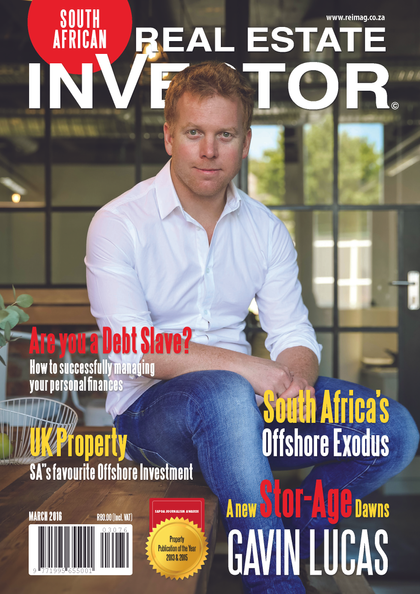Property developers are increasingly becoming more creative when looking at spatial and property design, this to meet the ever-evolving needs of the urban dweller. Shared spaces, duality within the home, and access to public and private (communal areas) amenities are all modern-day needs that wouldn't have been as important to a developer in SA a decade or two ago.
As more people choose to move into the city to minimise commute time, maximise security and convenience; so do these urban residents look for more out of their cities than before. A beautiful apartment to live in is but one of their needs, people also require creative spaces and open places that they can use for their after-hours entertainment and relaxation, this sometimes in lieu of a large garden or entertainment area in their home. Although many urban apartment owners that do have their own large gardens and outdoor spaces still choose to utilise shared spaces for the social benefit they offer.
“Property developers are becoming increasingly aware of the value of the wider urban environment, and in particular of the public realm” comments Guy Briggs, Director at dhk architects & urban designers. “This means that they are not only focused on the design of individual buildings, whether offices, shops, apartments or private homes; but they are also aiming to create public spaces on private land, as well as upgrading existing public space outside of their site boundaries –ensuring that these benefit the surrounding community. This serves the dual purpose of improving the attractiveness of the property concerned, as well as the surrounding neighbourhood; which in turn increases the value of their development.”
Good examples of developers doing this are South Point in Braamfontein, Jhb; Propertuity, the development brand behind the Maboneng Precinct also in Johannesburg, and Blok, urban property development brand making waves on Cape Town's Atlantic Seaboard.
Braamfontein has evolved from a rundown area with concerns about crime and vagrancy in the early 2000s, to being the fourth-largest node for office space in the city of Johannesburg and home to a number of South African-based multinational corporations as well as one of the country’s premier educational institutions, the University of the Witwatersrand.
The Maboneng Precinct ten years ago was seedy, crime-ridden and dilapidated. Today there are art galleries, collaborative work spaces, cinemas, and a creative and eclectic mix of people on the street – international tourists and homecoming-revolution expats, business people, students and artists. This all due to a young entrepreneur who understood the area's potential, and what people in the area needed.
The same can be said for the young team behind Blok in the Western Cape; living in the city themselves they understand how an urban landscape is used when it's not only your workplace but your front yard and living space. Shared amenities are a must, and these must tap into the needs of the community. These needs touch on workspaces, outdoor yoga and exercise facilities, street festivals and events that speak to people interested in getting out of their home and experiencing their cities.
A perfect example of city events run and driven by its residents is Open Streets Cape Town (OSCT), founded by a group of volunteers in 2012, and registered as a non-profit organisation in 2013. It enjoys the full support of the City of Cape Town, as well as civil society organisations and many individual volunteers from across the city. OSCT is rooted in ‘street action’, as well as research, and has grown as a dynamic and organic movement of ‘street-minded’ citizens.
OSCT works to challenge the paradigm of urban mobility by carrying out campaigns, temporary interventions, dialogues and walks that raise citizen awareness, spark public debate, and ultimately drive behaviour change, around the role of streets in the life of the city. The flagship programme, which launched the organisation, is a series of Open Streets Days that are spreading across Cape Town and currently happen in Bree Street and Langa, with the inaugural Mitchell's Plein event happening in April 2016.
Open Streets Days are inspired by Bogotá’s ‘Ciclovía’, a recreational programme that creates 120km of car-free streets in the Colombian capital every Sunday and public holiday. More than 400 cities around the world have followed suit with their own versions of streets that provide space for recreation and social interaction, and the response that the Cape Town events have had show that the city is ripe for these kinds of events.
“It is an extremely exciting time to be in city and urban property development, the opportunities for creative exploration are wide open and we are working more collaboratively with the city and spatial specialists on projects such as the Regent Road Parklet, offering pedestrians and residents free WiFi and a place to rest, and upgrading city parks to benefit not only Blok buyers, but the general area and its community,” says Jacques van Embden, MD of Blok. “There are a group of developers nationally that are already taking advantage of these opportunities, and we would love to challenge the rest to do the same. The more we work together to benefit our cities, the more it'll benefit the greater community, which after all is what city development is all about.”

